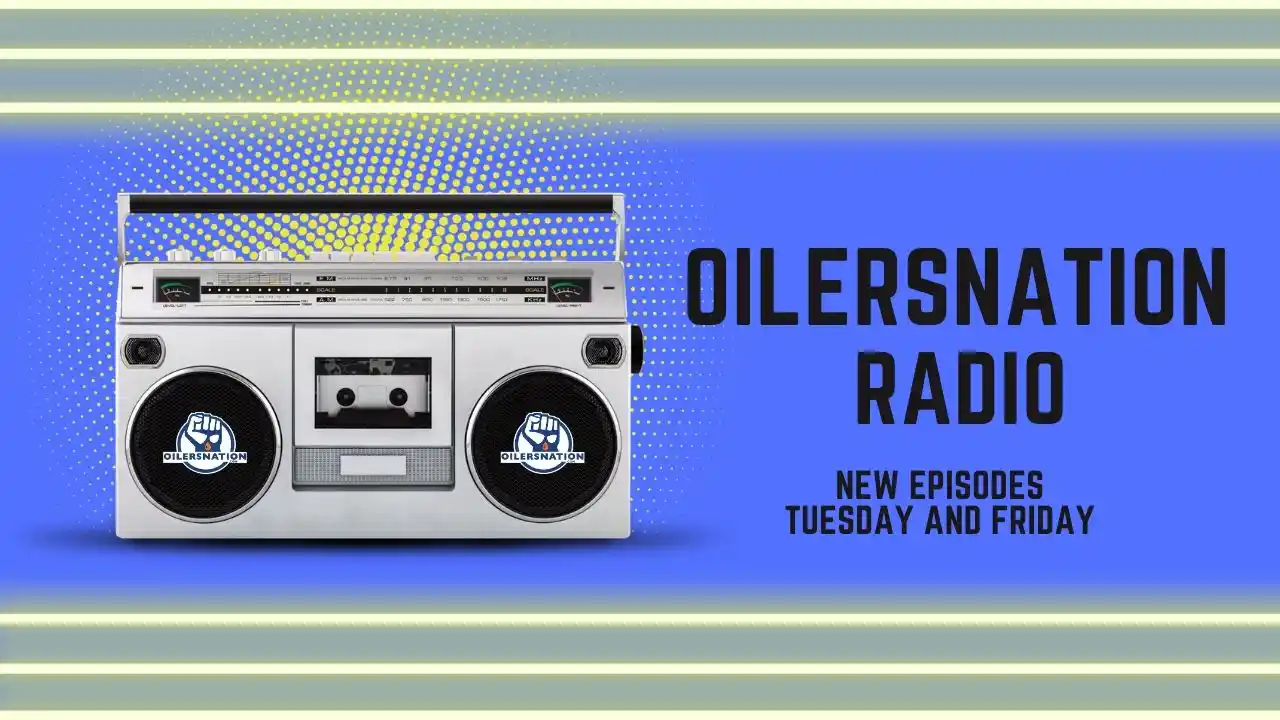#BellLetsTalk
By Kyla Lane
7 years ago
Everyone is entitled to mental health. Period. Unfortunately, one in five Canadians will struggle with a mental illness, making mental health difficult to attain for many. With odds like that, each and every citizen of Canada will know at least one person who suffers from or has been affected by someone suffering from mental illness. And that’s why initiatives like Bell Let’s Talk Day are crucial in the quest of not only raising money for mental illness but bringing much-needed awareness to it.
I understand and apologize that this isn’t a hockey article that you would normally come here to read, but this is a conversation that’s definitely worth having.
Today, we can use technology as not only a way of raising funds for mental health initiatives, but to further extinguish the stigma surrounding mental health. Share your story, let others know that you’re an ally in their fight against mental illness, or just watch the Bell Let’s Talk Facebook video and contribute to the cause. Bell has raised $79, 919, 178.55 for mental health initiatives since its inception in 2010. This is an overwhelming amount of money, but the number that isn’t accounted for is how many lives this day and the ensuing conversations have saved.
In 2012, Canada lost 3,926 people to suicide. That means that every day nearly 11 people take their own lives in our country. We’re losing nearly 4000 people per year to a death that is preventable, and that’s why we need to use our voices.
As we’ve seen many times in the past with initiatives like Hockey Talks and Do It For Daron, the hockey community is incredible at coming together for the support of the cause. While Bell Let’s Talk Day spans across a Nation, a highly influential portion of this day comes from athletes and ambassadors from the sports world. Among those are former Olympian Clara Hughes and long-time pillar in the sports community, Michael Landsberg.
Michael Landsberg

Luckily, I had the chance to talk with Michael and find out why he became a part of this day and the significance that mental health initiatives play in his life:
As someone who is prominent in the sports world, why do you think it’s important for the sports community to get involved with Bell Let’s Talk Day?
Michael: It’s important for every “community” to get involved. But the sports community is so relevant in so many people’s lives that it can be used to persuade people that the stigma is wrong! A team like the Oilers – with their players who are so admired in the community – can have a huge impact. If Connor McDavid says, “I think mental illness is like any physical illness”, it can change and save lives!
What can we do to further the conversation on days that aren’t Bell Let’s Talk Day and how do we get those conversations started at home, at the office, on our teams, etc?
Michael: It starts with understanding the importance of dialogue. TALKING SAVES LIVES! It’s that simple. Let’s use families as an example: It would make a HUGE impact if families would discuss mental health like they discuss alcohol and drugs and sex. Everywhere there is dialogue, there is greater understanding, and greater understandings means less stigma. Less stigma means more people get help. More people getting help means less suicides. That’s why I say TALKING SAVES LIVES!
When people think of mental health care they often think of the associated cost. Are there avenues or programs that are available that people may not know about? Where do we look?
Michael: Help doesn’t come to us – we have to go to it. Sometimes we have to chase it, wrestle with it, fight with it – to get it! The system for mental health care in Canada is terrible. The easiest care to get is the costliest – that’s not good. If you work and have benefits – find out what you are entitled to. Many companies and providers don’t tell you because it saves them money. Call the local agencies that deal with mental health, like CMHA and ask for direction to inexpensive resources.
It’s not easy. It should be. But it’s not.
Since you first began advocating for mental health compared to now, what changes have you seen in terms of the way mental health is talked about? What changes would you still like to see?
Michael: We need to turn up the frequency and the volume. Sure it’s a bit better. But at an Oilers game with 17,000 people in attendance, there are still hundreds living in the closet – afraid to share. We need to convince them to come out of the closet and the best way to do that is to hear people speaking about their struggles without shame and embarrassment and without sounding weak!
Sports and Mental Health

Bell Let’s Talk Day has always been a special day for me: while we, as a society, aren’t at the point we need to be in regards to mental health, it’s a reminder of just how far we have come. In one month’s time it will be 20 years since my dad took his own life. 20 years ago he refused to get help because mental illness was equated to weakness – I’d like to think that if we’d been at this stage back then, he’d still be alive. And that’s why this day, and every day that we continue to talk about mental health, is important to me. The day that I was old enough to fully realize my own mental health struggles and the unfathomable darkness that mental illness can bring on a soul, was the day I vowed to never stay silent about mental illness.
Throughout my struggles, I have learned that hockey, and the community I’m a part of because of it, is essential for not only my mental health but for encouraging others to use their voices. There’s a great deal of power in being a part of something that’s so much larger than yourself, yet can connect people on even the smallest of scales. This is why I asked people within the sports community to comment on why they think it’s important for people in the sports world (and beyond) to get involved with the conversation regarding mental health:
Sasky Stewart
“I think there’s two parts to this when we talk about the importance of sport and mental health being linked: General Advocacy and Internal Awareness.
The role that the sports community can play in general advocacy, in bringing awareness to issues that affect us all, not just mental illness, is something we’re all aware of. Mental health, though, is one of the issues that I think benefits the most, though. The world’s greatest athletes, the heroes helping bring things that traditionally haven’t been talked about or have been shrouded in darkness are helping start conversations that bring them to light and start to normalize them. When an athlete, a role model (rightly or wrongly), someone looked up to says, “I have this problem – I have experienced depression, I have experienced ADHD, bipolar, borderline personality – I have experienced these things”, we draw light towards these causes and that light shines on those who themselves may be suffering in their own darkness.
But the internal awareness within the sporting community of mental health is a different thing. Sport is first and foremost entertainment, and in the pursuit of such entertainment, we run the risk of commodifying human beings into objects, with objectives and goals that allow no consideration of the personal impact of their actions. We’ve only got to look at the litany of ex-NHL players, ex-athletes whose post-playing lives have been shrouded by the darkness of mental illness to know that mental health has a place in sport and it’s a discussion we need to not just be having, but shouting about over and over.
I’m an optimist, one of those crazy people that believes in the ability of sport to change lives. I don’t mean the power to provide pathways out of darkness into luxurious lifestyles brought on by athletic success but by the power to break down barriers, to build bridges across seemingly insurmountable divides and to provide us with lessons that will help us also do these things in our own lives. Sport is a powerful place and we use it to talk about so many things and I think mental health should be one of those things because it allows us to slowly start changing these things.”
Jason Gregor
“I think it is important for all people, regardless of occupation, to be involved in the discussion regarding mental health. As more people become comfortable discussing mental health issues it becomes less of an uncomfortable topic. I believe the discussion needs to evolve from being open about it, to discussing avenues and ways for people to better handle their challenges, but also what we can do to help eliminate the stresses. There are many factors, and there likely isn’t an easy solution, but I hope as the discussions grow we have more empathy towards those facing mental challenges, but also we look for solutions rather than just say “deal with it.”
Allison Currie
“The ability to talk about mental health in a sports environment is so important. It is important for both the athletes and the spectators. With athletes, there is so much pressure to be “strong”. You have to be tough. Mental illness of any kind is often seen as a weakness. No one wants to appear ‘weak’, but especially athletes. This is an area where I feel like it may be especially difficult for men, because it is such a stereotypical “macho” environment, where it seems like social norms are still several years or steps behind the rest of our society. It’s more difficult for men in general to discuss mental health, but put them in the most testosterone driven environment and it becomes scarier to admit that something is wrong. It becomes harder to speak up about how one is feeling.
When it comes to spectators/fans, this being more about professional sports, I think it is so important for mental health to be as “normal” as a lower body injury. There have been so many arguments I have been in where someone has come into it with the attitude of, “poor millionaire athlete, living everyone’s dream.” That perpetuates the stigma of mental illness just being a controllable mood or a pity party. It perpetuates the myth that it’s not a disease. Just like liver disease, kidney disease, etc, the brain is an organ that can malfunction and need medical care. A successful athlete speaking out about mental illness shows that it can hit anyone; it can hit someone who has everything they have ever wanted in life. It shows that while you can help control it and take steps to prevent it from crippling you, it isn’t something that you create. It isn’t your ‘fault’. Not only does it help eliminate stigma, but imagine a child who feels so alone with their disease discovering his or her favourite athlete fights as well. That feeling of not being alone can give someone strength and hope.”
Jeff Veillette
“The approach we take to caring about these games isn’t horribly dissimilar to the approach that benefits many in their day-to-day struggles with mental illness. Having venues to find reprieve, being in a constant battle to get better, and finding your most success with a support system in place are very similar and relatable concepts.
But it doesn’t always turn out this way. The hyper-competitive nature of games at their highest level encourages reclusiveness and lack of remorse and makes anything that isn’t unwavering confidence or strength seem like a show of weakness that needs to be pushed aside.
That’s a mindset that leads to you not getting help when you’re struggling, and to not helping others when they need it. When that carries over to the real world, you have athletes who don’t know what to do with themselves away from the playing surface, and fans who take too much inspiration for the “always on” narrative and apply it to their own real worlds.
With the gigantic global sporting community we have at our disposal, it seems like using our strengths to attack our flaws. Carrying over the concepts of teamwork and unity to the mental health conversation, while asserting that it isn’t a show of weakness to seek assistance could do a world of good for people. Even going beyond the “support system” aspect and looking towards other forms of help, using the sporting communities own capabilities as a global team of sorts to amplify awareness of struggles the mentally ill face and ways one can be helped would be huge.
The sheer amount of people that we can reach, both within and outside our own circles cannot be understated, and it would be great to use the strengths sports teach us to help each other have better day to day lives.”
What now?
Today shouldn’t be the only day we talk about mental illness, but it’s a day that we should use to spark the conversation that should be carried on every day. If you’ve been too scared to speak up about your mental illness: do it today; if you don’t know how to tell the people in your life that you’re an ally to those in need: do it today; if you want to be a part of the conversation but just haven’t gotten the opportunity: do it today. A tweet, an Instagram post, a text… these may seem trivial, but they’ll spark a conversation and a conversation could save lives. Let’s start, and keep, talking.
Here at The Nation Network, we’ll be using the #BellLetsTalk hashtag as frequently as possible on Twitter and Instagram, and we encourage you to do the same!
Recent articles from Kyla Lane





